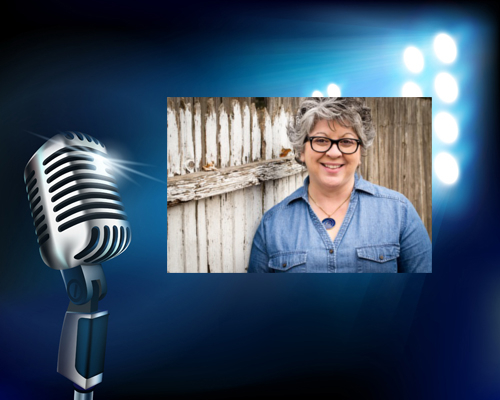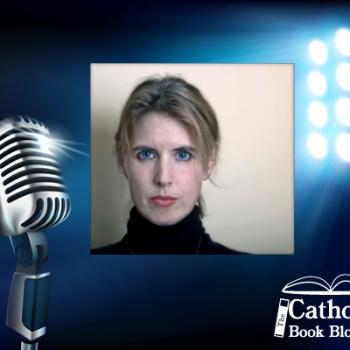In the past 30 years, María has been published broadly in the U.S., including the New York Times, St. Anthony Messenger, Our Sunday Visitor and other national and regional publications. She is a Director on the Catholic Press Association Board, and a fellow of the Salzburg Global Seminar, an international community of intellectuals.
Maria has traveled broadly on international assignments in Central America and the Caribbean, Israel, Turkey, and throughout Europe. Perhaps her favorite assignment was covering Pope John Paul II’s historic visit to her native country, Cuba. She has published six books, and contributed to numerous more.
Maria blogs at: http://daybydaywithmaria.blogspot.com/
Recently we discussed her latest book The Shepherd Who Didn’t Run, an excellent account on the life of Oklahoma martyr Father Stanley Rother.
PETE: Firstly, you deserve some thanks for bringing the story of Father Stanley Rother to readers, a man who very well may be the first male saint from America. Secondly, how did this project develop?
MARIA RUIZ SCAPERLANDA: Thank you, Pete! I have to emphasize that for me, as a Catholic journalist and author, it is truly an honor to be the person who published the first biography of Father Stanley Rother. And I do believe that he’ll be the first male saint from the U.S.—and our first martyr. How appropriate will it be that the first American saint be a farmer from Okarche, Oklahoma!
Our world is in desperate need of faith heroes, Pete. In the words of Oklahoma City’s Archbishop Paul Coakley, “We need the witness of holy men and women who remind us that we are all called to holiness — and that holy men and women come from ordinary places like Okarche, Oklahoma.”
As far as how I became involved in this project, the Church of Oklahoma has done a great job of making sure that the story of Father Stanley Rother is passed on from generation to generation. When we first moved to the state 20 years ago, my kids (who attended Catholic schools here) came home talking about the local priest who died in Guatemala—and I became intrigued! I wrote a few articles about Father Stanley for various Catholic publications. Years later, when the Archdiocese opened the cause and began working on this project, I was invited to be part of the Historical Commission, mostly working with the Spanish documents.
I also had the joy to know Father David Monahan, whom I mention in the book and credit with being the first biographer of Father Stanley. Father Monahan was a gifted journalist who worked for years collecting information and writing Father Stanley’s life story. Unfortunately, Father Monahan developed dementia and was unable to complete the book—or publish it.
When Archbishop Coakley commissioned me to write this book, I had full access to archdiocesan materials as well as to Father Monahan’s unpublished biography.
PETE: What did your research for this book involve?
MARIA RUIZ SCAPERLANDA: A lot of reading! It involved looking through and examining boxes and boxes of material, interviews, books, and historic data – in both English and Spanish – in order to learn not only about Father Stanley and his life, but also about the world in which he lived, both here and in Guatemala.
I was blessed with the opportunity to travel to Guatemala four years ago for the 30th anniversary of Father Stanley’s death and to interview people in Santiago Atitlán and the surrounding region who knew him—or who are devoted to him. As one nun I met said to me, the Church in Guatemala is not waiting for an official declaration of Father Stanley’s sainthood. They already know he is a saint, and they regularly go to him with their special petitions!
I also want to point out that Father Stanley’s family, in particular his two living siblings (Tom and Sister Marita) provided me with invaluable information and perspective on their oldest brother!
PETE: While writing the book was there anything that struck you about Father Stanley?
MARIA RUIZ SCAPERLANDA: There are so many things about Father Stanley that inspire me! I love that he was an ordinary man, much like you and me, who continually and deliberately discerned how to best serve God with his life. This really spoke to me.
I am also moved by Father Stanley’s commitment to the poorest of the poor, with whom he shared meals, the Eucharist, and work side-by-side in the fields. The farmer from Okarche, Oklahoma, became the pastor who drove the tractor and worked the farming land alongside his Tz’utujil parishioners!
Also, how amazing is it that the seminarian who failed a year because of his inability to learn Latin was able to go to a foreign mission and learn not only Spanish, but also the difficult and very technical Tz’utujil Mayan dialect! This is a symbol of living grace!
From all accounts, Father Stanley had a great sense of humor and he loved children. Whether in family photos or in the pictures from the Guatemala mission, Father Stanley is often seen with a tail of giggling children who followed him and grabbed his hands—much like Jesus in the Gospels.
One of the greatest testimonies to Father Stanley Rother’s sainthood is the love, devotion, and conviction with which the Church of Oklahoma and the Church of Guatemala remember him. His life and his priestly service remain a testament to the difference that one person can, and does, make.
PETE: Father Stanley’s cause for sainthood is currently under review. Can you provide us with an update?
MARIA RUIZ SCAPERLANDA: This past June (2015) a panel of nine theologians handed a majority vote affirming that Fr. Stanley Rother’sdeath was in odium fidei, or in hatred of the faith. A panel of 15 cardinals and archbishops, who are members of the congregation, must now approve the martyrdom cause. This is where we are today, waiting on this vote. If the panel agrees with the vote this past summer, the prefect will present it to Pope Francis, who will promulgate the decree of beatification.
After the determination of martyrdom is confirmed, Father Stanley can be beatified, the final stage before canonization.
PETE: You also have your own blog Day by Day with Maria. Can you share with my readers a little about your blog?
MARIA RUIZ SCAPERLANDA: I began my blog a little over three years ago as a sort of experiment. I had never done that kind of writing, and I wanted to learn, first of all, how to do it; and secondly, if I would enjoy that kind of writing. I am still learning, and in many ways I still consider myself a newbie!
If you drop by my blog you will notice that I write about many topics, and that’s because it’s a blog about seeing – noticing — God in the everyday of my life. My blog is about seeing God in the quotidian, ordinary moments of my life—as well as the special one-of-a-kind events, such as births, deaths, travel, and of course, my writing.
God is present in my world and active in my life—and sometimes I have the eyes to notice His presence! That’s what my blog is about.
PETE: Time for my signature-ending question. This is a blog about books. What books are currently on your bookshelf to read?
MARIA RUIZ SCAPERLANDA: I love this question! I have to begin by confessing that I am one of those people who read several books at once. I don’t ever start one book and wait to finish it before starting another one. I like having a good number of books at arms length, and I like them to be a little bit of everything. And by that I mean that I have not one stack of books to read, but several!
That being said, these are the books that are currently at the top of the stacks, the ones that I am slowly pondering and digesting right now:
“Re-Entry Into Faith,” a small gem of a book by Catherine Doherty, foundress of the Madonna House Apostolate.
“The Selected Poems of Wendell Berry”
Dappled Things Journal, a gift that I am really enjoying from my daughter Anamaria and her husband Travis.
“One Thousand Gifts: a dare to live fully right where you are” by Ann Voskamp
“The Art of memoir” by Mary Karr
“Advent of the Heart: seasonal sermons and prison writings” by Alfred Delp, Jesuit priest and martyr and finally, “Mocking Jay”! Yes, I am re-reading the novel in the Hunger Games series by Suzanne Collins. I love good fiction. I especially love good fantasy and sci-fi novels!
_____________________________________________________________________________________________________
Other books by this author:
The Journey: A Guide For The Modern Pilgrim












